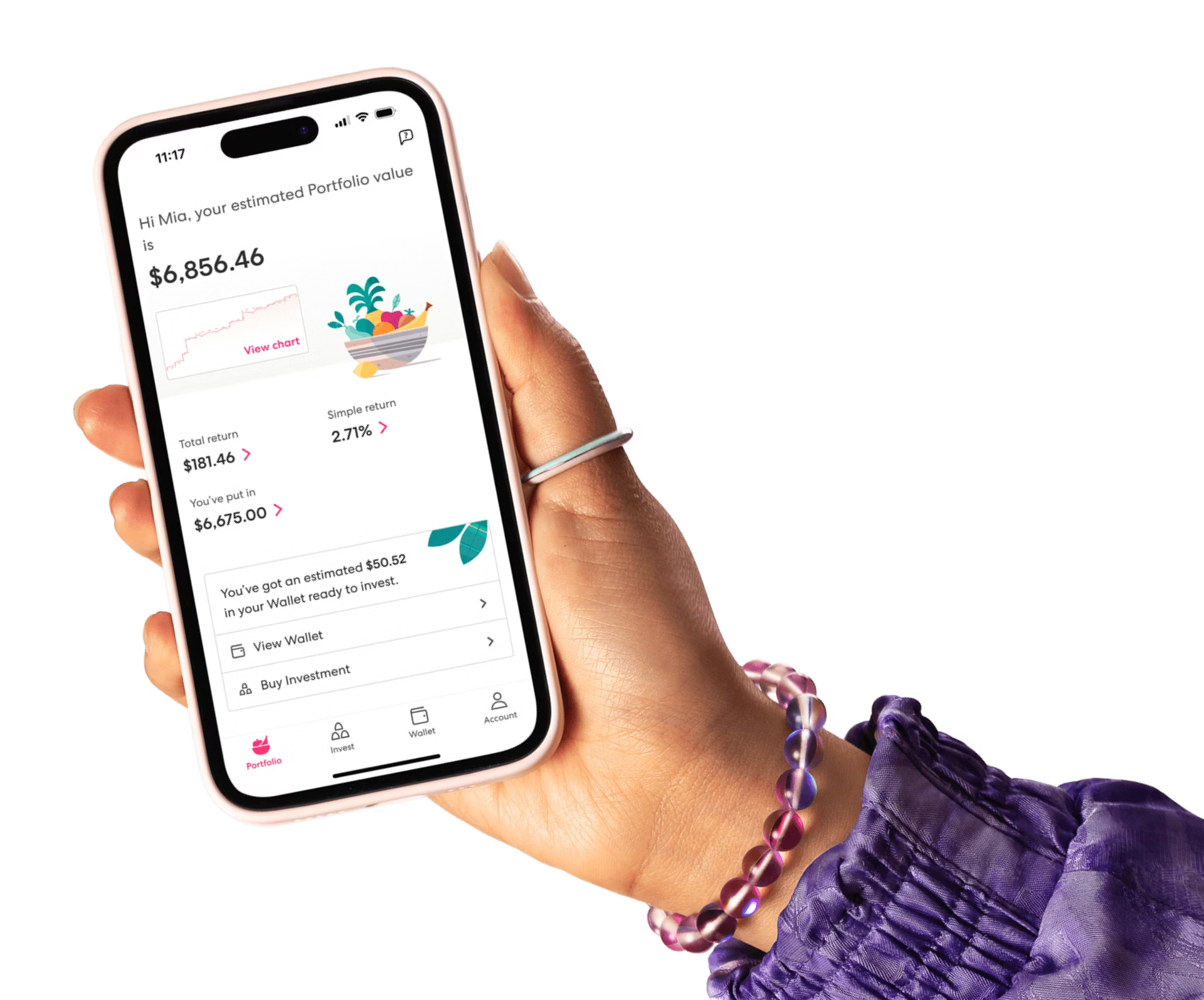Making managed funds manageable
A managed fund groups a bunch of investments together, providing easy diversification—but how does that differ from an exchange-traded fund (ETF)?

Family of funds
It’s true, managed funds and ETFs share a lot of DNA—but there are some key differences between the two.
Both are funds, meaning that your money is pooled together with other investors’ money to buy into a basket of investments. ‘Units’ represent your ownership of a slice of this overall fund, and while you may only hold one unit in a fund, that one unit represents a holding in all of the underlying investments of the fund—which could be many kinds of investments (think shares, bonds, or even cash).
So what’s the difference?
ETFs are exchange-traded, meaning units are bought and sold from other investors through an exchange (like the New Zealand Stock Exchange).
The managed funds on Sharesies generally aren’t bought and sold on an exchange. When you invest in a managed fund on Sharesies, you’re buying or selling the units from the fund provider itself.
Because the trade doesn’t take place on an exchange, we call these managed funds ‘unlisted’.
By being unlisted, managed fund unit prices are calculated and updated less frequently than ETFs. As a result, the price you see in Sharesies for managed funds is the most recent mid-price we’ve received from the fund manager, and will always be at least one day old.
Managed fund orders can also take longer to settle. The duration of this time differs between managed funds, so make sure to brush up on the settlement time relevant to you.
‘Managed’ also matters
Compared to ETFs (which may track an index or particular sector), managed funds tend to be more actively managed—though this doesn’t mean indices are completely left in the dark!
Most managed funds are benchmarked against an index, meaning they use an index as a point of comparison for their performance. Typically, they’re trying to outperform that index—but they also carry the risk of underperforming in comparison to their benchmark. Some managed funds might only track an index—so it’s important to do your due diligence to know what the fund’s goals are.
Besting the performance of an index is where a fund manager comes in, as well as the term ‘active management’. Each managed fund is typically assigned to a manager, who may also have a team of analysts working in the background.
These people monitor the performance of the fund and the investments within the fund, and research potential investments for the fund. They may take an active role in rebalancing the fund if specific investments out-grow their target allocation, to keep the fund on track with its objectives.
Fund managers are also responsible for producing monthly and quarterly reports, outlining how the fund has been performing for both current and future investors. Because of this active role in the management of the fund, managed funds tend to have higher fees.
Why invest in a managed fund?
Professional picks
As we’ve said, managed funds are usually actively managed by professional fund managers. The extensive research these fund managers do can take some of the work out of investing, as professionals are selecting investments on your behalf.
This does come with a cost, and fund managers are only human. As with any investment, you aren’t guaranteed to make money—so it pays to always do your due diligence and not be too hands off with your own Portfolio.
Diversification
Investing in one company means you’re completely dependent on the performance of that one company. If your money is spread across lots of different investments (like it is in a fund), your overall holding typically takes less of a hit if just one of those investments loses value.
Fund managers might also include ETFs in their funds, giving you an added layer of diversification.
Variety
It might be daunting trying to find the right managed fund for your investment strategy and values—there are quite a few options out there! Thankfully, they tend to fall into or across some general themes:
Broad market funds benchmark against an index of investments from across an exchange, like the NZX 50 or S&P 500, attempting to mirror the performance of the share market as a whole. They then try to outperform that index—like by increasing the allocation of a particular share in comparison to its allocation in the index.
Thematic funds are focused on a specific theme, trend, or sector—whether it be renewable energy, healthcare, gender diversity, or video gaming … the list goes on!
ESG (environmental, social, governance) funds provide an opportunity to invest in responsible companies across industry, country, or asset type.
Wrapping up
Whether you invest in managed funds depends on your personal situation and investment strategy. As always, do your due diligence and check the fund’s Product Disclosure Statement (PDS) before you invest. It’ll include information on:
what index, sector, or asset class the fund returns aims to replicate or beat
the fees and costs
the risks of investing in the fund
how to complain if you have a problem with the fund.
You can also check the monthly and quarterly reports for a glimpse of the funds’ holdings. If you have questions about a managed fund, you can contact the fund provider or speak to a licensed financial adviser.
Ok, now for the legal bit
Investing involves risk. You aren’t guaranteed to make money, and you might lose the money you start with. We don’t provide personalised advice or recommendations. Any information we provide is general only and current at the time written. You should consider seeking independent legal, financial, taxation or other advice when considering whether an investment is appropriate for your objectives, financial situation or needs.
Join over 800,000 investors



